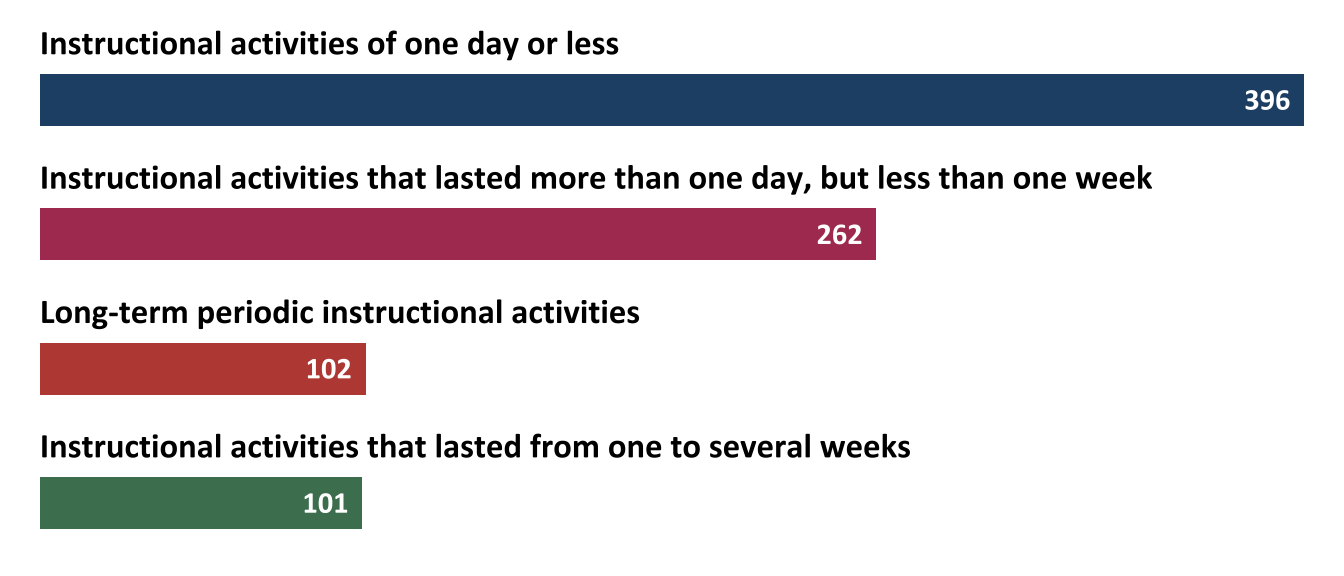
Chapter 6 Professional Development for Educators
6.0.0.0.2 The ATE program provides support for projects to develop and deliver professional development for educators, with a focus on enhancing their “disciplinary capabilities, teaching skills, understanding of current technologies and practices, and employability skills” (National Science Foundation (NSF), 2018, p. 5). ATE PIs were asked to report on the focus, number, and length of professional development activities provided by their projects, as well as the number and type of participants and number of students subsequently impacted by those participants.
6.1 Professional Development for Educators
6.1.0.1 Thirty-eight percent of ATE projects provided training or professional development to current or future educators.
One hundred nineteen ATE projects provided 860 training or professional development activities for educators in 2020. Almost half of these activities were a day or less in length (46%), including webinars and one-day workshops. Almost one-third lasted more than one day but less than a week (30%), including in- person multi-day workshops and online modules. The remaining 24% of activities lasted one week or longer, including courses, summer institutes, internships, and peer coaching.
6.1.0.1.1 ATE projects offered 860 professional development activities for educators in 2020.

Figure 6.1: Number of professional development activities for educators by length of time (n=119)
Professional development activities focused on a range of skills and topic areas. Eighty-one percent focused on discipline- or industry-specific knowledge or skills, 42% on pedagogy, and 40% on training on specific equipment. Additional professional development topics reported by ATE projects included recruitment or retention of students (18%) and other professional skills, such as leadership (13%).
Sixty-two percent of educators served by professional development activities were two-year college faculty, followed by four-year college faculty (18%) and high school teachers (12%). Pre-service teachers made up less than 1% of professional development participants, and other types of educators made up 8%.
